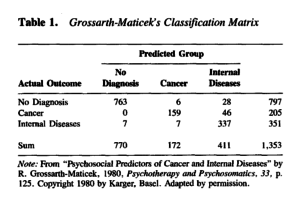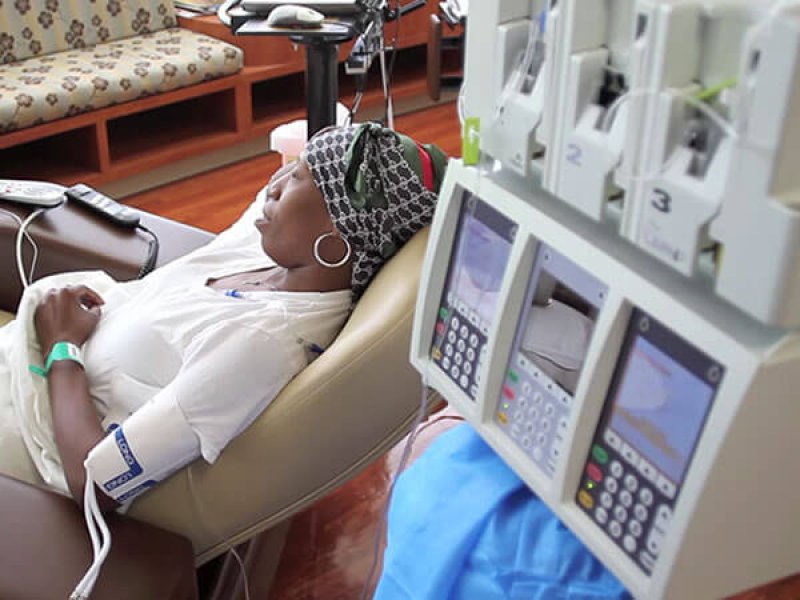The Journal of Health Psychology has just published an extraordinary pair of papers that call for a new inquiry into a 30-year old case of probable scientific fraud.
According to Anthony J. Pelosi, author of the main paper, the case was “one of the worst scientific scandals of all time” and yet has never been formally investigated.
…
The scandal in question is one I had never heard of before, but the facts are jaw-dropping. Beginning in 1980, a Dr Ronald Grossarth-Maticek reported that he had discovered a cancer-prone ’emotionally repressed’ personality. Someone with this personality type was, he claimed, at very high risk of later developing cancer.
…
Here’s one of the many remarkably strong effects found in Grossarth-Maticek’s data, as discussed by Fox (1991):

This table represents the most important discovery in medical science since penicillin… if it were true. According to these data, Dr. Grossarth-Maticek was able to predict, with virtually perfect certainty, who would get cancer in the next 10 years.
…
The controversy rumbled on for a few years but by the late 1990s, it had petered out, no formal investigation ever having taking place. Eysenck died in 1997. Pelosi calls for an investigation to happen now – better late than never.
Read full, original post: The Cancer Personality Scandal (Part 1)































